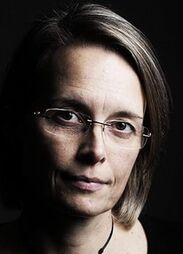|
The Bildung Rose Model of a Functioning Society
by Lene Rachel Andersen The ‘Bildung Rose’ is a model of functioning societies; all functioning societies have the seven domains: Production, Technology, Aesthetics, (political) Power, Science (or at least fact-based knowledge), Narratives (holding society together), and Ethics (principles behind moral values and narratives). Like all models, it is a simplification, but it allows us to see the big picture in ways that would otherwise be hard to see.
The reason it is called the Bildung Rose, not the Societal Rose, is that in order to thrive in your society, you need to understand and grasp all seven domains to some extent. Nobody can (nor should be) an expert in all of them, but we all need the Allgemeinbildung to have an idea about what is going on in each domain in our society in order to contribute in meaningful ways to the public conversation and democratic process. Our inner world has to overlap with the outer world, so to speak. The reason it is called the Bildung Rose, not the Allgemeinbildung Rose, is that when we look at the individual, the domain in the middle, Power, becomes power over oneself. This power represents empowerment, emotional depth, moral aspirations, and sense of responsibility towards society, others and self. This is a different kind of development than mere Allgemeinbildung or knowledge about society and everything in it. In order for this inner, emotional, moral development and maturation to take place, we need to struggle with all seven domains in the outer world. We should not just read about them, but go out and get some pushbacks of different kinds. That is ‘bildung’. Formal education needs to prepare us for this, of course, with sufficient knowledge. However, for the past couple of generations, our educational systems have focused still more narrowly on knowledge relating to production and technology, and to some extent to science, if by that we mean the natural sciences. Particularly aesthetics, narrative (history, theology, storytelling, political ideology) and ethics, i.e. what makes life meaningful and that which most of us pursue because it makes us happy and fulfilled, have been cut out of the curricula and are often perceived as “luxuries;” nice to haves. Power may be taught as political science, but even that, in many places, is considered as a nice-to-have more than a need-to-have. In my Reboot Dialogue I talk about why all seven domains need to be equally prioritized in our school systems in order for them to empower everybody to be democratic citizens. |
